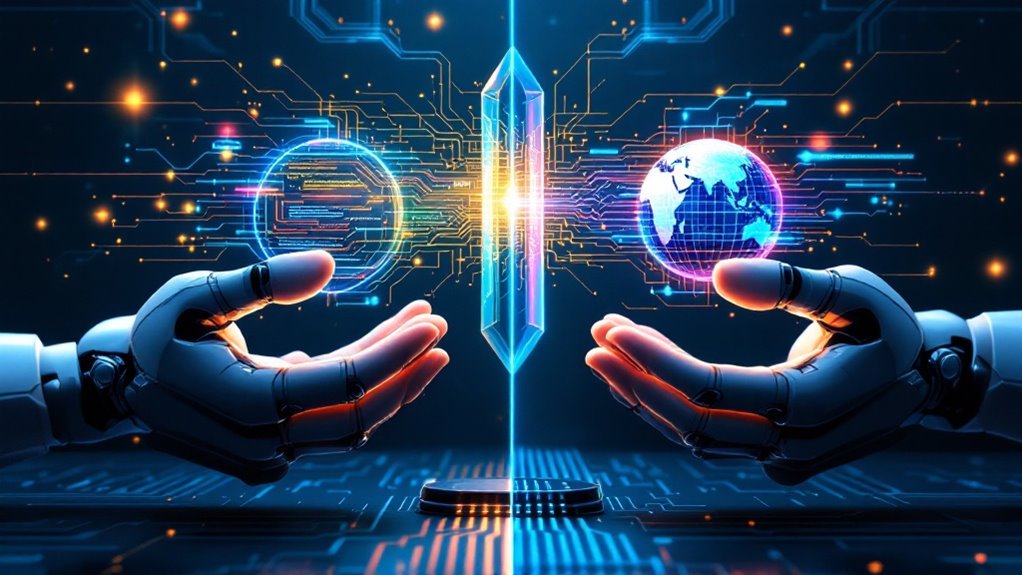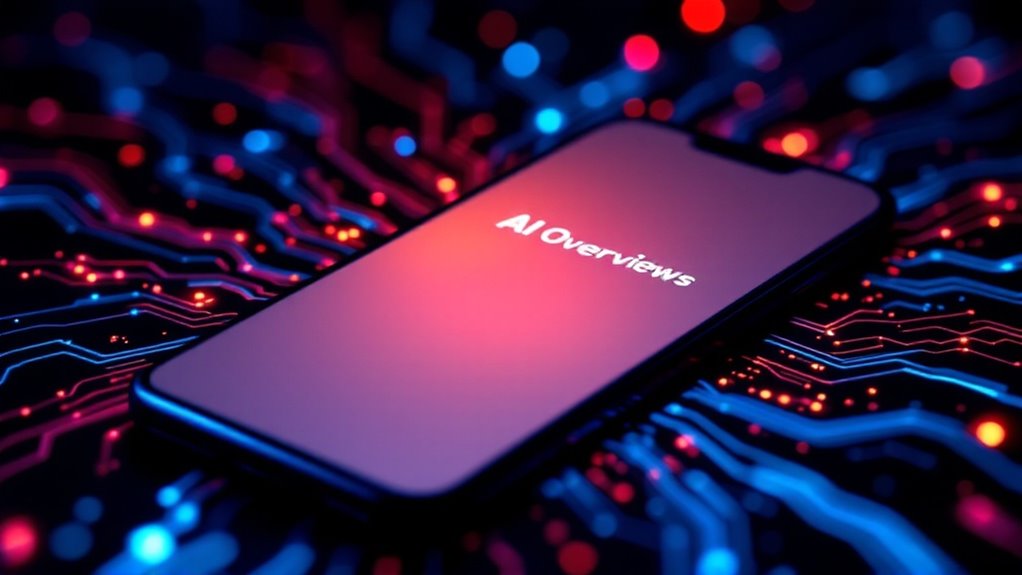Ethical considerations in AI revolve around five key problem areas that’ll make your head spin. Tech sprints ahead while ethics plays catch-up, like a toddler chasing a Ferrari. Algorithmic bias reinforces societal prejudices in everything from hiring to criminal justice. Privacy? What privacy? AI surveillance watches your every move. Inclusivity remains an afterthought, and nobody knows who actually “owns” AI-generated content. Buckle up—these ethical questions aren’t just theoretical debates, they’re reshaping our digital reality.
While technological innovation races forward at breakneck speed, the ethical frameworks governing artificial intelligence struggle to keep pace. It’s like watching a toddler chase a sports car—adorably ambitious but woefully outmatched.
Behind the glossy veneer of AI progress lurks a shadowy domain of algorithmic bias, where systems trained on skewed data perpetuate society’s prejudices in hiring tools, criminal justice systems, and those facial recognition programs that somehow recognize everyone except people of color.
Transparency in AI isn’t just a buzzword—it’s the difference between understanding why you didn’t get that job and wondering if a black-box algorithm just didn’t like your name. When machines make decisions that affect human lives, shouldn’t we be aware *how* they’re making them?
The black box of AI doesn’t just hide decisions—it buries accountability in algorithmic quicksand.
Imagine being denied a loan by HAL 9000’s cousin who simply states, “I’m sorry, Dave, I’m afraid I can’t approve that,” with zero explanation.
Privacy concerns multiply faster than browser cookies on a shopping site. AI-powered surveillance can track your movements, analyze your behavior, and predict your actions with unsettling accuracy. Your smart devices are fundamentally tiny spies living in your home, broadcasting your midnight snack habits to databases around the world.
Remember when privacy was actually a thing?
The social impacts of AI reach far beyond convenience. Systems designed without inclusive perspectives end up serving only narrow segments of humanity. It’s as if we’re building a digital world with stairs everywhere and no ramps in sight. The use of technology like deepfakes creates serious threats to election integrity and democratic processes worldwide.
Meanwhile, humans increasingly function as safety nets rather than drivers, ready to grab the wheel when AI veers off course.
Without proper oversight, lending algorithms risk returning to redlining practices that historically disadvantaged underserved borrowers, despite AI’s potential to provide more objective assessments.
Questions about who owns AI-generated content are the intellectual property equivalent of asking “who wrote this—the pen or the person holding it?” As AI systems create art, music, and literature, our legal frameworks scratch their metaphorical heads in confusion.
The ethical questions surrounding AI aren’t just academic exercises—they’re urgent conversations about the world we’re building.
And unlike our AI systems, we can’t just reboot society if we get it wrong.
Integration challenges with existing systems create additional roadblocks to implementing ethical AI solutions across organizations that might otherwise help address these concerns.









